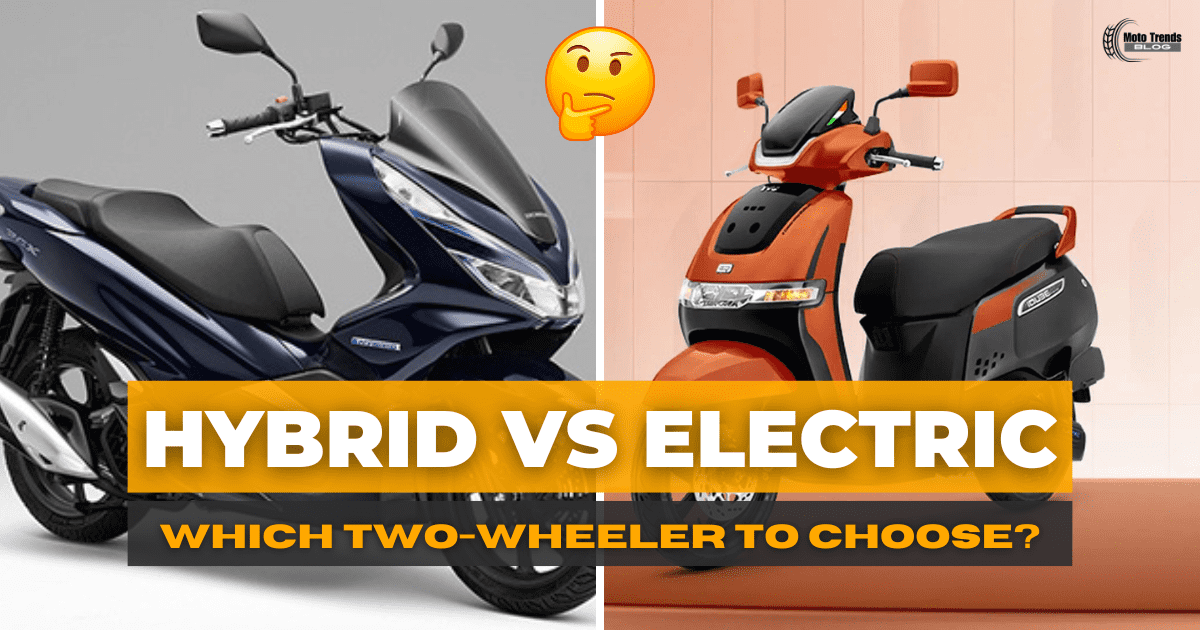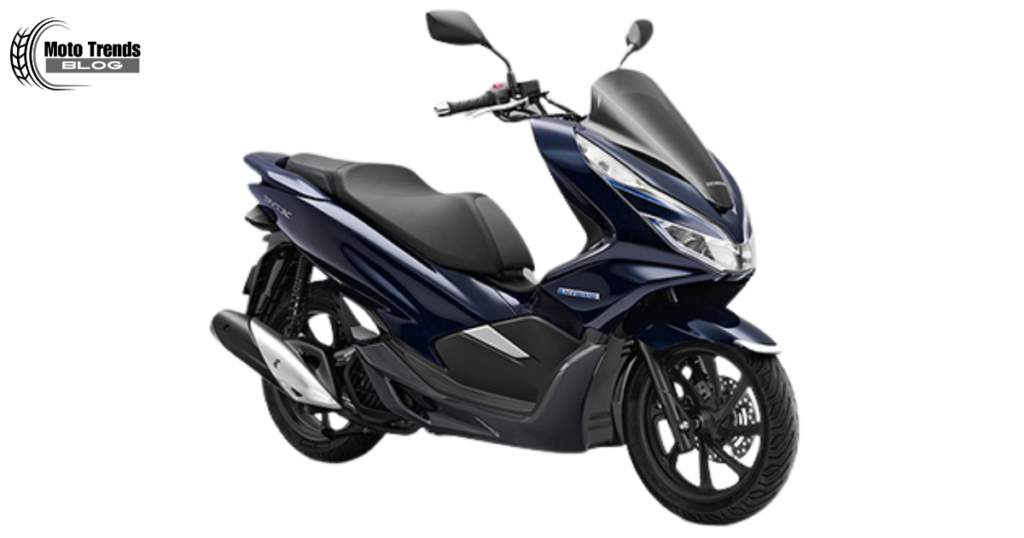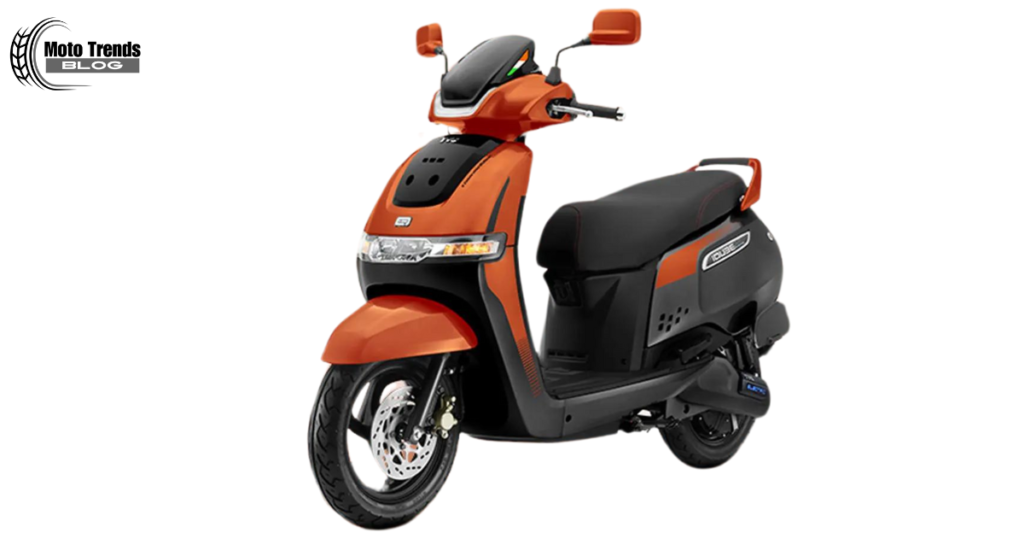As global concerns about greenhouse gas emissions and pollution continue to rise, the transportation industry has become a major focus for environmental reforms. Traditional internal combustion engine (ICE) vehicles are known to contribute significantly to pollution, but thanks to the rise of hybrid and electric vehicles (EVs), the automotive landscape is undergoing significant transformation.
In recent years, the demand for eco-friendly transportation has surged, with hybrid and electric two-wheelers gaining popularity among environmentally conscious riders. These sustainable options not only reduce a rider’s carbon footprint but also help cut down on fuel expenses. However, the debate persists—should you choose a hybrid two-wheeler or an electric one? This guide aims to help you make an informed decision by comparing the two.
Understanding the Differences: Hybrid vs Electric Two-Wheelers
Before diving into the pros and cons, it’s essential to understand how hybrid and electric two-wheelers differ in their technology and functionality.
Hybrid Two-Wheelers: These bikes are powered by both an internal combustion engine (ICE) and an electric motor. The combination allows riders to switch between gasoline and electric power, making hybrids suitable for both short commutes and long-distance rides. When the electric motor’s battery runs low, the ICE kicks in, allowing the rider to continue without range anxiety.
Electric Two-Wheelers: Electric bikes rely solely on battery power and don’t have an internal combustion engine or gas tank. While this makes them completely emission-free, their range is limited by battery life. Planning trips with an electric two-wheeler requires extra caution to ensure access to charging stations, especially for long journeys. Despite the limited range, electric two-wheelers have become popular for their zero fuel costs and reduced environmental impact.
Which Should You Choose? Hybrid or Electric Two-Wheeler?
Choosing between a hybrid and an electric two-wheeler depends on various factors, including your driving habits, budget, and commitment to sustainability. Let’s take a closer look at the pros and cons of each.
Pros and Cons of Hybrid Two-Wheelers
Pros of Hybrid Two-Wheelers
Extended Range: With the combination of an electric motor and a gasoline engine, hybrids offer a greater range than electric vehicles. If the battery runs out, the rider can rely on gasoline to continue their journey, making hybrids perfect for long trips.
Fuel Efficiency: Hybrid two-wheelers are more fuel-efficient than traditional gasoline-powered vehicles, helping reduce fuel costs while also cutting down on emissions.
Availability: Hybrids are widely available in the market, with a variety of models to choose from. They are often more affordable than electric two-wheelers, with lower upfront costs.
Cons of Hybrid Two-Wheelers
Environmental Impact: While hybrid two-wheelers use electricity for short distances, they still rely on gasoline, contributing to some level of pollution.
Maintenance Costs: Hybrids combine both electric and internal combustion components, which can lead to higher repair and maintenance costs compared to electric two-wheelers.
Less Electric Range: The electric range of hybrids is usually limited, meaning they won’t run on electric power alone for very long.
Pros and Cons of Electric Two-Wheelers
Pros of Electric Two-Wheelers
Zero Emissions: Electric two-wheelers produce no tailpipe emissions, making them the most environmentally friendly option. They significantly reduce greenhouse gases and contribute to cleaner air.
Lower Maintenance: With fewer moving parts—no fuel pump, clutch, or complex engine systems—electric bikes are easier and cheaper to maintain. There’s no need for oil changes or frequent servicing.
Government Incentives: In many countries, buyers of electric vehicles enjoy tax breaks, subsidies, and other financial incentives that make purchasing an electric bike more attractive.
Silent, Smooth Ride: Electric two-wheelers offer a quiet, seamless ride with instant torque and responsive acceleration, enhancing the overall riding experience.
Cons of Electric Two-Wheelers
Limited Range: Electric two-wheelers typically have a shorter range compared to hybrid vehicles, making them less practical for long trips without access to charging stations.
Higher Upfront Costs: Electric bikes tend to have a higher purchase price compared to hybrid two-wheelers, although the lower operating and maintenance costs can offset this in the long run.
Charging Infrastructure: In many regions, the availability of charging stations is limited, which can pose a challenge, especially for riders who travel longer distances.
Making the Right Choice: Hybrid vs Electric Two-Wheelers
When deciding between a hybrid or electric two-wheeler, consider the following factors to help guide your decision:
Charging Infrastructure and Range
If you live in an area with well-established charging infrastructure and you mostly take short trips, an electric two-wheeler might be the right choice. However, if you need a vehicle that can handle long-distance trips without worrying about battery life, a hybrid two-wheeler provides more flexibility.
Cost Considerations
Hybrid two-wheelers generally have a lower purchase price compared to electric ones, but they also come with higher maintenance and fuel costs. On the other hand, electric bikes may require a larger initial investment, but their lower running and servicing costs could save you money in the long term.
Environmental Impact
Both hybrid and electric two-wheelers are more eco-friendly than conventional gasoline-powered vehicles. However, electric two-wheelers take the lead in terms of sustainability, as they produce zero emissions. Hybrid two-wheelers reduce fuel consumption and emissions but still rely on gasoline for longer trips.
Driving Habits and Lifestyle
Your lifestyle and driving habits play a big role in this decision. If you frequently take long trips or live in an area with poor charging infrastructure, a hybrid two-wheeler may be more practical. On the other hand, if your primary use is for short commutes and you prioritize reducing your carbon footprint, an electric two-wheeler is the way to go.
Conclusion
Choosing between a hybrid or electric two-wheeler ultimately depends on your needs, budget, and commitment to sustainability. While hybrid two-wheelers offer a longer range and flexibility with fuel, electric two-wheelers provide the lowest environmental impact and long-term savings on fuel and maintenance.
Consider the factors discussed in this guide—range, cost, environmental impact, charging infrastructure, and driving habits—to make an informed decision. Whether you choose a hybrid or an electric two-wheeler, both options offer a sustainable alternative to traditional petrol-powered vehicles, helping you reduce your carbon footprint and embrace the future of green transportation.
In the evolving landscape of eco-friendly vehicles, there’s no wrong choice—just the one that best fits your needs.



